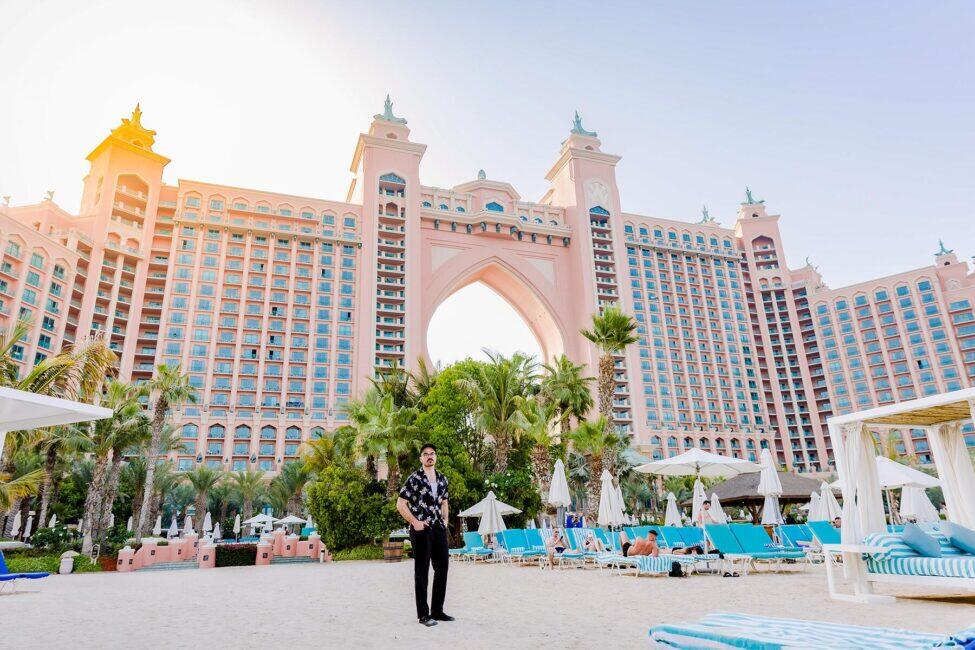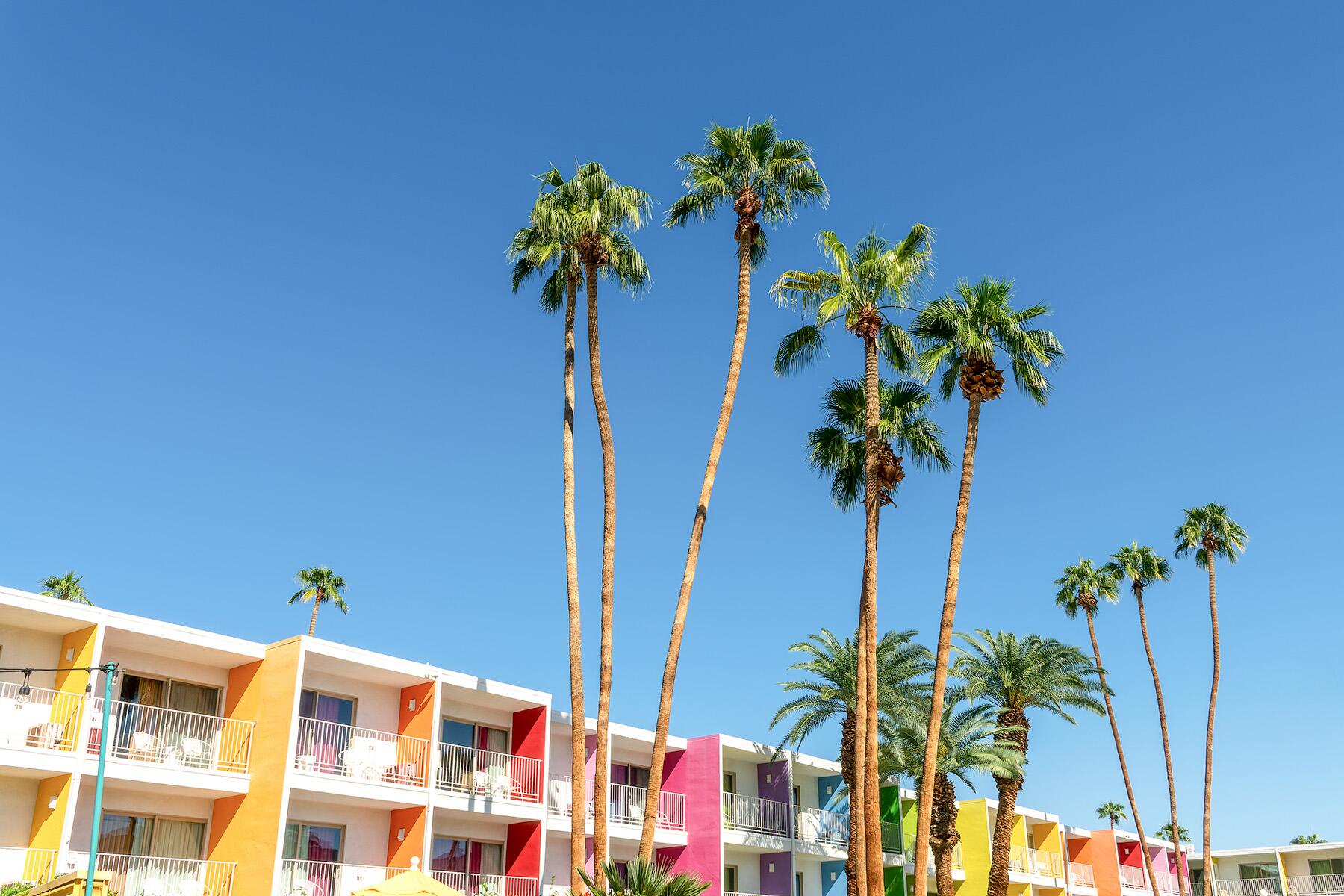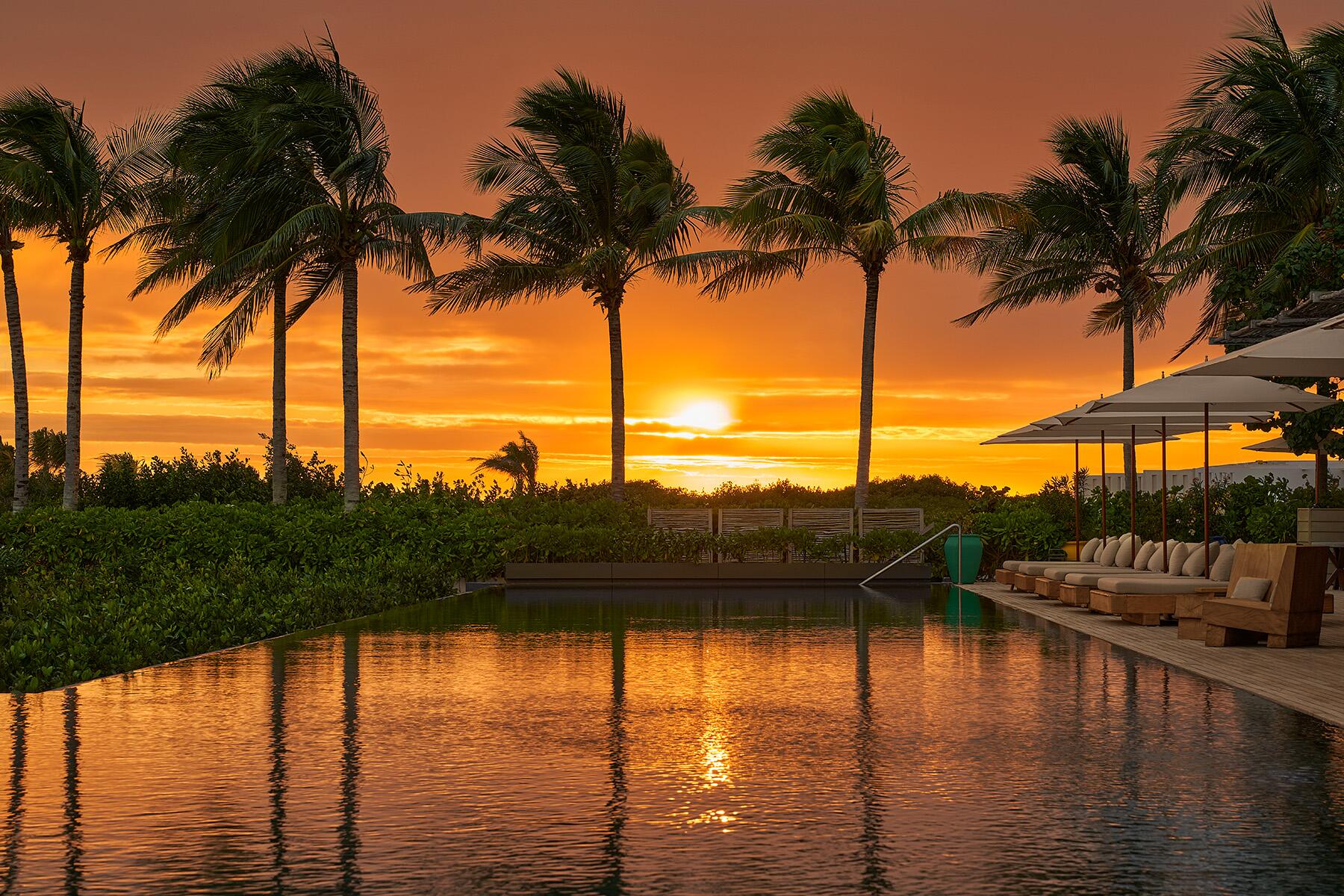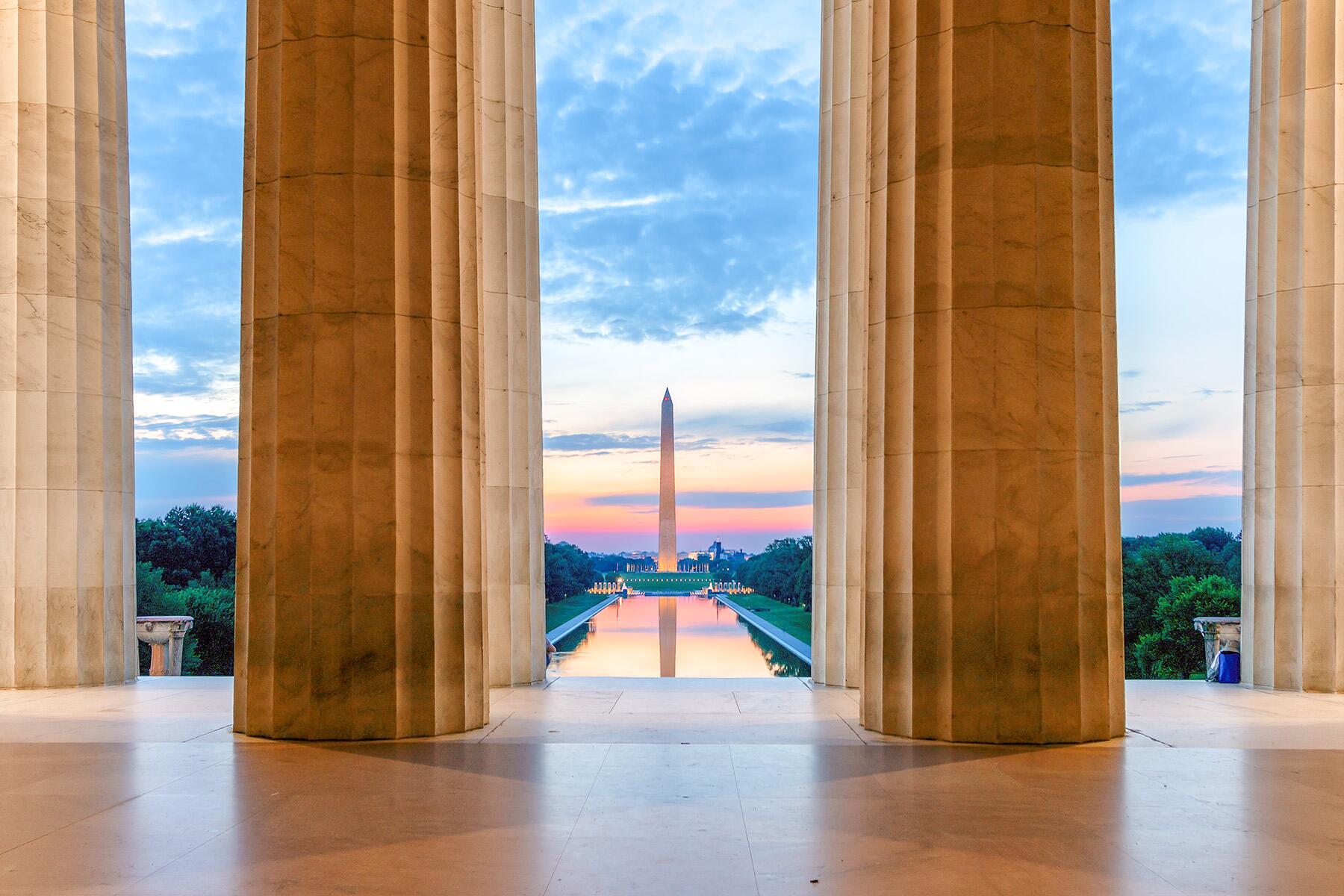Rising like a paradisical mirage in the desert, Atlantis Dubai is an aquatic-themed hotel offering the height of luxury.
I am 32 feet underwater, wearing a pressurized air helmet that looks like something out of a sci-fi movie. To my left, a white tip shark swims circles around a row of dilapidated columns. On my right, there’s a stingray that’s twice the size of my torso. Moving in the water is a Herculean effort, but I slowly make my way toward the group of other divers. They’re gesturing wildly with their arms, creating a parade of bubbles that dances upward towards the surface. For a moment, I worry that something has gone wrong.
Is there a problem with someone’s equipment? A run-in with an errant sea creature? But as I get closer, I realize that the divers are waving to a group of children. They’re on the other side of a glass wall, watching us traverse the bottom of the massive aquarium, another animal to witness among the 65,000 others in the tank. It occurs to me that outside the water, the weather is pushing 102 degrees. Just a 40-minute drive, and we’re surrounded by desert.

The Aquatrek Extreme dive is part of The Ambassador Lagoon, the largest waterpark in the Middle East, which boasts some of the world’s tallest waterslides. It’s one of many surreal experiences at Atlantis Dubai. In a city that has built its reputation on luxury and opulence, the 116-acre resort stands out for its massive size, its slew of world-class restaurants, and the number of over-the-top suites that can run upwards of $30,000 a night.
Recommended Fodor’s Video
Atop The Palm Jumeirah—a man-made island created to look like a palm tree when viewed from an airplane or helicopter—the hotel paints a striking silhouette among the backdrop of the Arabian Sea. Inside, Atlantis is decorated with an artistic interpretation of the resort’s lost city namesake. The lobby boasts a towering Dale Chihuly sculpture, surrounded by kugel fountains in oversized clamshells. Similar structures are littered throughout the corridors. Turn a corner, and you’ll find a coral-shaped chandelier. Take a right, and there’s an ornamental kelp statue. It’s a beautiful, bizarre motif, with the location’s aquatic theme standing in stark contrast to the oppressive outdoor heat.
Atlantis flew me to Dubai from Toronto, putting me up in their west tower for four days, and creating an itinerary highlighting their water-based activities. In addition to the shark dive, there were also stints of underwater yoga, guided paddleboarding, and luxuriating at private beachside cabanas where a rotating cast of attentive staff offered an assortment of cocktails. Every 10 minutes or so, a man with a cooler stopped by to ask if I wanted a complimentary popsicle.
Sitting by the water, play-acting some version of the rich and famous, I made small talk with the staff, asking them questions to try and get a sense of the hotel’s usual clientele. It’s a mix of families drawn in from the waterpark and beach, couples taking in Atlantis’ in-house restaurants and nightclubs, and a handful of businessmen in town on stopovers before heading to India or Asia.

I grill for any salacious celebrity encounters, but everyone is appropriately discreet. The best I can get out of anyone is that VIPs often stay in the hotel’s underwater suite. Hearing this information, I nodded my head and took a long pull of my drink, acting as though an underwater hotel suite is a normal thing to bring up. Sitting at a private beach cabana after an indoor shark dive feels like the height of decadence to me, but maybe I need to start thinking bigger.
From my teens to my late twenties, I spent over a decade working in restaurants. That much time in the industry leaves you attentive to the finer details of service, a kind of expert by osmosis. But I don’t think I really understood high-end dining before the trip to Atlantis. While the hotel’s whimsical decor straddles the line of kitsch, their restaurants are almost comically luxurious. Each night of the trip, I was greeted with multi-course tasting menus, the head chefs and bartenders in friendly competition for the resort’s stand-out meal.
At the Michelin-starred Hakkasan, the waiter brought a cocktail in an oversized glass dome. Lifting the protective casing, smoke billowed upward to reveal a chilled rocks glass, a presentation part theatre, part magic trick. As I sipped, the complex flavors washed over me. A vodka base. Champagne. Then a salty sweetness I couldn’t quite put my finger on. I inquired with the waiter. The drink had been infused with passionfruit and popcorn essence. On the menu, its description read: She abandoned her duties of weaving clouds and rainbows to play on earth for one day.
The Dubai iteration of the famed Nobu restaurant over delivered on its reputation. Their signature miso black cod has a worldwide following, to the point where I questioned how good one piece of fish could actually be. Tasting the dish, I understood how a company could build a dining empire on the recipe. The melt-in-your-mouth texture and umami profile of the cod changed the way I think about food. It’s cooking as art in the highest sense.
But the favorite meal of the trip came at Seafire Steakhouse. Chef Steven Fair greeted our table like old friends, asking us to ignore the menu and trust his instead trust his expertise. Given the chance to show off, Fair pulled out all the stops. Lobster and oysters to start. Enough boulevardiers to drown a small child. A dry-aged porterhouse so big we needed to commandeer an additional table to account for the size. The food was remarkable, but the comradery of the chef and his staff made for an absolutely unforgettable evening.
Finishing up at the table, I did the mental math on what a meal like that might cost. Between the food and alcohol, it easily clocked in at over $1,000. I thought about the effort it takes to make this kind of food with the UAE’s sandscape. I thought about the people who can afford this type of experience on the regular. Then I used my finger to scrape the last piece of cheesecake off a nearby plate.
The next day, nursing a headache during another stint at the hotel waterpark, I crossed paths with international soccer superstar Neymar and his entourage. As they walked by, I wondered if he was booked into one of Atlantis’ high-end accommodations. He could also be the owner of a luxury yacht visible from the hotel’s many top-floor balconies. Or maybe the Brazilian athlete and his crew were staying underwater for the evening, like the other A-listers before them. There aren’t many places in the world with those kinds of options.
Atlantis’ underwater suite has multiple rooms looking out onto a private corner of the aquarium, hidden from public eyes. Accompanying the suite is a 24-hour butler service, a private elevator, and a personal terrace. In another hotel, it would no doubt be the establishment’s crown jewel. But for Atlantis, that distinction belongs to the Royal Bridge Suite, a 3,000-square-foot mansion-esque living space connecting the East and West towers, complete with three master bedrooms, a library, a game lounge, and a 16-person dining room.
The locations are something out of a fairy tale, a type of luxury that’s usually reserved for movies or dreams. But the signature suites are indicative of Dubai’s larger motif: the city’s wealth is used for rapid expansion, continually building bigger and bolder versions of the future even as the temperature of the region continues to go up. For the right price, the only limitation is imagination.

Emboldened by days of five-star dining and hospitable staff, I sent a text message to the Atlantis PR contact on my last day. I asked if it was possible to stay in the bridge suite for the evening. What better coup de grâce than showcasing Atlantis’ crown jewel on my way out? Their response was a polite but decisive no. I understood. I couldn’t even be mad. After swimming with sharks in the desert, private aquarium yoga, and some of the best food I’ve ever had, it was time to return to real life.
Checking out, I thought about the opulence I’d experienced and wondered if there was anything about the trip I could take away and bring home to my day-to-day life. But the point of Atlantis is that it has nothing to do with the every day at all. It’s a world all its own for those who want to visit.



